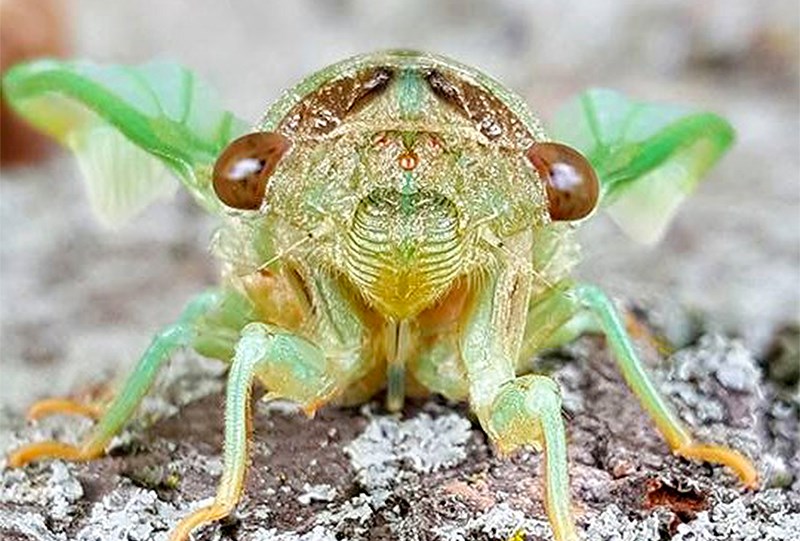Lisse Meilleur
I am not much of a “bug” person. I’m terrified of spiders (don’t worry arachnid lovers, I know spiders aren’t insects) and I don’t like to have bugs crawl on me. I don’t like to pick them up or touch them.
But there is an incredible insect out there that has my attention all summer long. You may not have heard of them, but if you’ve stepped outside on a hot summer day then you have definitely heard them. They are cicadas and they are the little critters responsible for all of the buzzing noise heard in the neighbourhood.
What’s so cool about cicadas, you ask? Aren’t they just crickets that come out in the day?
Well, technically their name is derived directly from the Latin “cicada,” meaning “tree cricket,” but that is where the similarity to a cricket ends.
By the time a cicada can be heard it is already at least two years old and has spent most of that time underground. Some cicadas spend as long as 17 years underground before emerging.
A bug that lives 17 years! I told you they are amazing little critters, but it doesn’t stop there.
After spending years underground burrowing, eating and growing, cicadas are signalled by the warming earth that it’s time to emerge. The cicada “nymphs” crawl out of the earth and climb the nearest tree to shed their exoskeleton.
While out walking my dog one recent Sunday, I was lucky enough to watch not one but two cicadas emerging from their shells. It is certainly an amazing sight. This must be a banner year for cicadas because I found seven shells on the same walk.
Once cicadas shed their shells they climb further up the tree to wait while their wings unfurl and their skin hardens. This stage of their lives lasts only four to six weeks.
That’s it. All that time underground, and only a few short weeks to enjoy the sunshine and beauty of summer.
It’s the male you hear making all of that buzzing noise. They flex the muscles in their abdomen and the sound is magnified because their abdomens are pretty much hollow. Male cicadas sing to attract a female to mate.
Depending on their species, cicadas emerge in cycles of every two to five years, thirteen years, or as long as seventeen years. There are over 190 species with more discovered each year.
There is so much more to our every day life than meets the eye. Cicadas truly are a wonder. Look around, take notice and enjoy the songs of the season and the insects that create them.
Lisse Meilleur is a Sarnia nature enthusiast and amateur photographer
